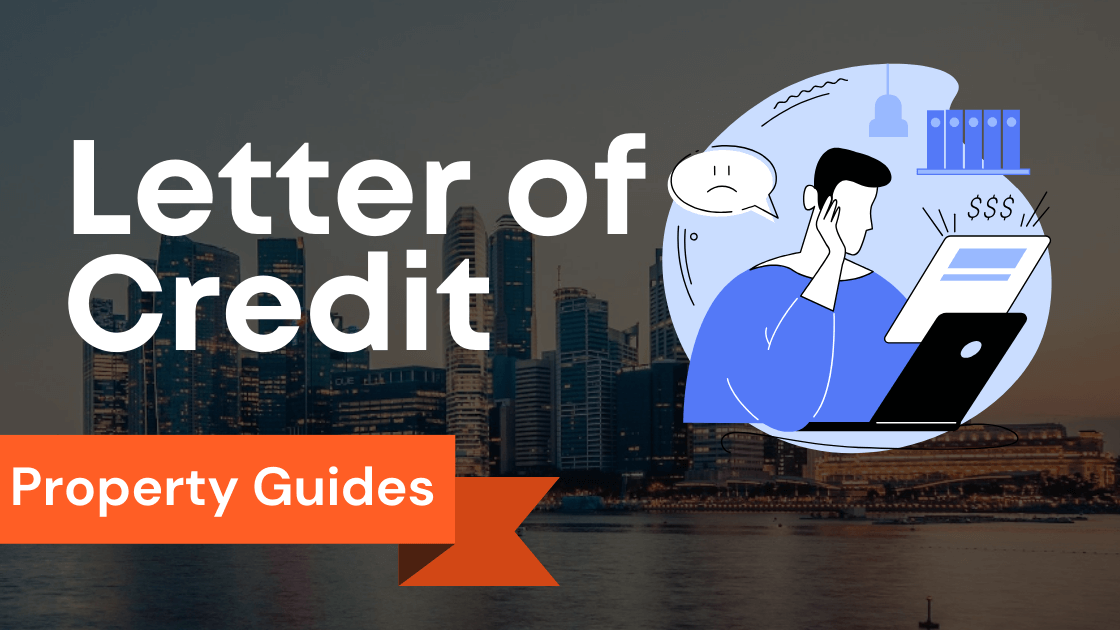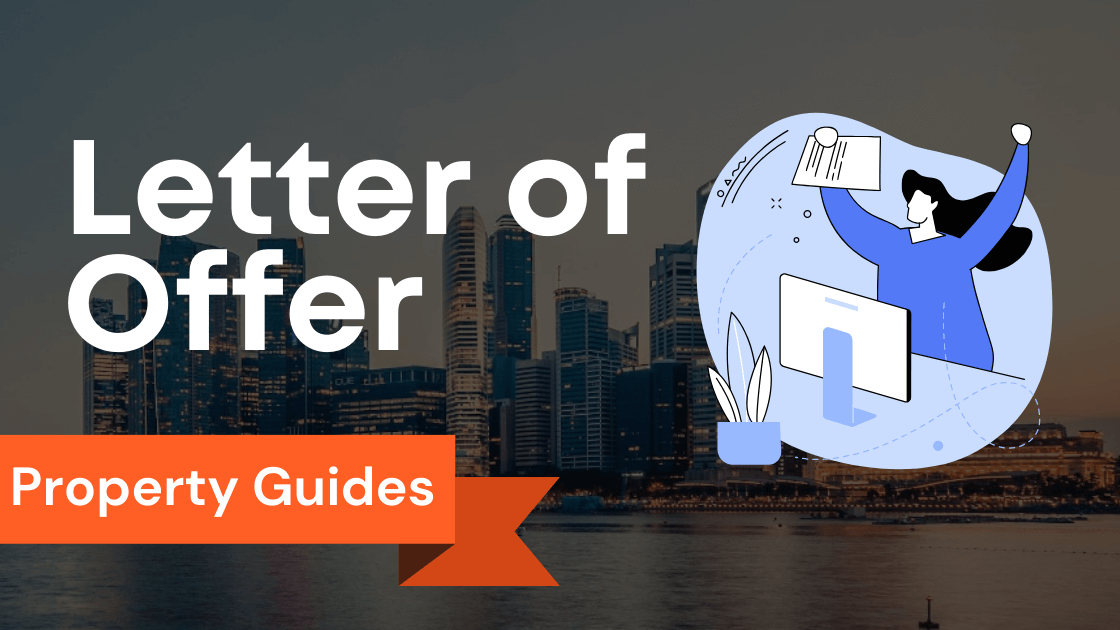Leaseholds Property: Benefits of a Leasehold Property Owner
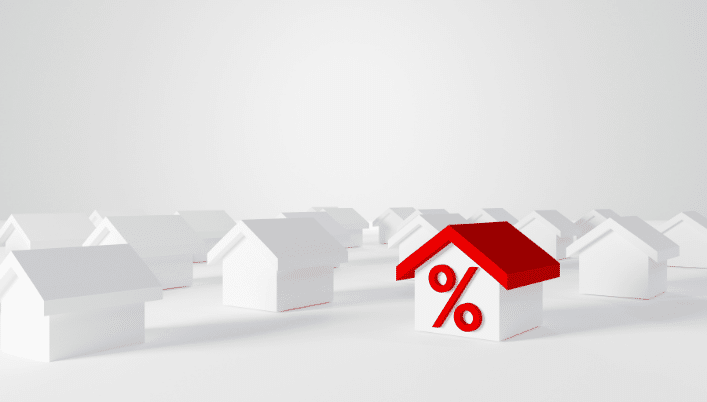
What is a Leasehold Property?
In Singapore, leasehold properties are a common form of tenure for both residential and commercial properties.
A leasehold property refers to a property that is owned by an individual or entity for a fixed period, typically between 99 to 999 years.
During this leasehold period, the property is leased from the government or a landowner.
This leasehold agreement grants the owner certain rights and responsibilities over the property, including the ability to sell, renovate, and sublet.
However, it is important to note that once the leasehold period expires, ownership of the property reverts to the landowner or government.
Leasehold properties typically refer to properties that are owned on a leasehold estate rather than a freehold estate.
When individuals purchase a leasehold property, they essentially enter into a contract with the owner, granting them the right to use the property for a specific period.
This concept is commonly seen in rental properties, such as apartments or condominiums.
Leasehold is an accounting term that signifies the tenure of the property, indicating the duration for which the leasehold estate is held.
In some cases, properties may have long lease terms, such as 999-year leasehold properties or 99-year leasehold condos.
At the end of the lease term, the ownership of the property reverts to the owner unless the lease is renewed or extended.
Selling a leasehold property can also be challenging, especially as the property approaches the end of its lease.
It is important to consider that leasehold properties are typically valued as a percentage of their freehold value, meaning they are generally less valuable than freehold properties.
When comparing leasehold or freehold properties, it’s essential to understand the implications of each.
Buying a freehold property grants full ownership of the land or property indefinitely, providing more security and control.
On the other hand, leasehold properties require the tenant to pay a recurring fee, sometimes called ground rent, to the landlord or freeholder.
While leasehold is common for commercial property, it is also prevalent in residential properties, particularly in countries like Singapore where land scarcity drives the demand for leasehold properties.
However, buying a new launch property may provide the opportunity to purchase a leasehold property with a longer lease term.
Ultimately, individuals should carefully consider their needs and plans before deciding whether to lease or buy a freehold property.
Benefits of a Leasehold Property
There are several benefits to owning a leasehold property in Singapore.
Firstly, leasehold properties are generally more affordable compared to freehold properties, making them attractive to potential buyers and investors.
Additionally, leasehold properties can generate rental income, providing a steady stream of passive income for the owner.
Another benefit is that leasehold properties tend to be newer, as the leasehold period starts from the date of development.
This means that leasehold properties are often in better condition compared to older freehold properties.
Property tax for leasehold properties is also typically lower, which can result in significant savings for the owner.
Although leasehold properties have a limited leasehold period, they can still provide good investment returns if purchased at the right price and location.
Buyers need to consider factors such as the remaining lease period, property age, and potential future developments in the area.
Types of Leasehold Properties
Leasehold properties in Singapore can come in various forms, including residential properties such as condominiums and landed houses, as well as commercial properties like offices and retail spaces.
Within these categories, there are different types of leasehold properties, including leasehold condos and HDB flats.
The leasehold period can also vary, with some properties having shorter lease terms compared to others.
When considering a leasehold property, it is important to understand the specific terms of the lease agreement, including any restrictions or conditions attached to the property.
This will help buyers make an informed decision and ensure that the leasehold property meets their needs and investment goals.
https://www.youtube.com/watch?v=gipcMDp4UDw
Overall, leasehold properties offer an affordable and potentially lucrative option for property ownership in Singapore, with the flexibility to generate income and the potential for capital appreciation.
Key Takeaways
- Leasehold Property Definition: Leasehold properties in Singapore are owned for a fixed period, generally between 99 to 999 years, with ownership reverting to the government or landowner upon lease expiry.
- Benefits of Leasehold Properties: Leasehold properties are more affordable, generate rental income, and are often in better condition compared to freehold properties. Property tax is typically lower, making them attractive to buyers.
- Types of Leasehold Properties: Leasehold properties in Singapore include residential properties like condos and landed houses, as well as commercial spaces. The lease period and terms can vary.
- Leasehold vs. Freehold: Freehold properties offer indefinite ownership, while leasehold properties have fixed lease periods. The choice depends on long-term goals and financial situation.
- Steps for Buying Leasehold Property: Understand the lease terms, research the property, consider financing options, and engage a property consultant. Eligibility requirements apply.
- Mistakes to Avoid When Buying: Seek professional advice, consider the remaining lease period, and evaluate factors beyond location before purchasing.
- Selling Leasehold Property Steps: Research the market, engage a property agent, prepare necessary documents, market the property, negotiate, and close the deal.
- Factors Affecting Property Value: The remaining lease, type of leasehold, and location influence the value of a leasehold property.
- Tips for Selling Leasehold Property: Sell in a favorable market, enhance the property’s appeal, and highlight leasehold property advantages.
- Leasehold Property Market Trends: Historical performance has shown challenges for older leasehold properties. Current trends show continued activity and the future outlook remains positive.
- Government Initiatives: The government has introduced 999-year leasehold titles and Commonhold Properties to enhance the market for leasehold properties.
Freehold vs Leasehold Properties
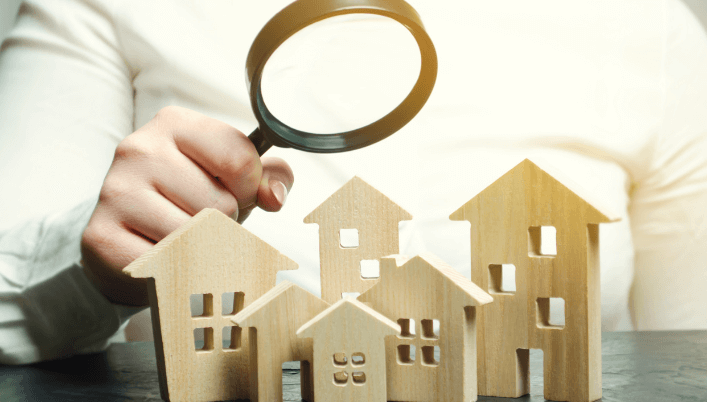
In the vibrant real estate market of Singapore, understanding the difference between leasehold and freehold properties is crucial before making any investment decisions.
Let’s delve into the key points that differentiate these two property types.
Key Differences Between Leasehold and Freehold Properties
Freehold properties: When you purchase a freehold property, you own both the property and the land it stands on indefinitely.
As a freehold property owner, you have the flexibility to make alterations and renovations, and you are not bound by a lease agreement.
Leasehold properties: On the other hand, leasehold properties come with a leasing agreement between the property owner (usually the government or a private developer) and the buyer.
These properties are held for a fixed period, typically 99 years or 999 years.
Once the lease expires, ownership reverts to the landowner.
Which Type of Property is Right for You?
When deciding between freehold and leasehold properties, it’s essential to consider your long-term goals and financial situation.
- Property buyers: If you plan to live in the property for generations or pass it down as an inheritance, freehold properties provide greater certainty and a sense of ownership.
- Housing loans: Financial institutions generally offer more favorable loan terms for freehold properties, making them an attractive option for buyers seeking mortgage financing.
- Investment decisions: Leasehold properties can be a viable option for investors looking for shorter-term investments and higher potential capital gains.
- Investment strategies: Some investors employ a diversification strategy, balancing their portfolio by investing in both freehold and leasehold properties to maximize returns.
Factors to Consider When Choosing Between Leasehold and Freehold Properties
Several factors should be taken into account when making this decision:
- Advantages of freehold: Freehold properties provide peace of mind, as there is no need to worry about lease expiration or potential land reacquisition issues.
- Private properties: Freehold properties are often found in prime locations and offer luxurious amenities and facilities.
- Real estate industry: The market value of leasehold properties tends to decrease as the lease approaches expiration, while freehold property values are generally more stable.
- Capital gains: Freehold properties tend to appreciate more significantly over time, making them an attractive option for long-term investments.
- Leasehold agreement: When considering a leasehold property, carefully review the lease terms, including the remaining lease duration, renewal options, and any restrictions on alterations.
https://m.youtube.com/watch?v=h8iSRXETtW0
By understanding the differences between leasehold and freehold properties and considering your financial goals, you can make an informed decision when investing in Singapore’s competitive real estate market.
Buying a Leasehold Property in Singapore
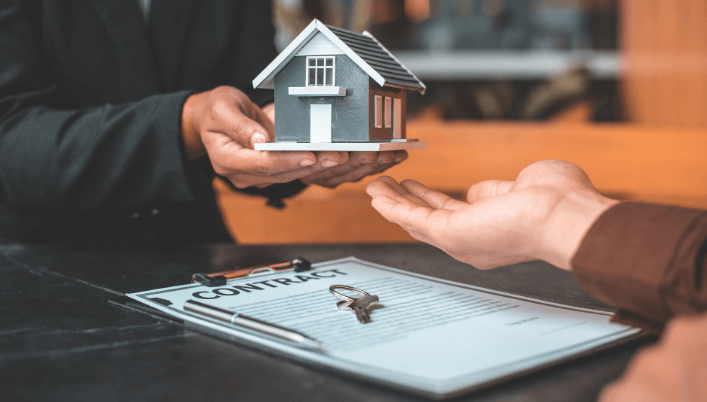
Steps Involved in Buying a Leasehold Property
Thinking of purchasing a leasehold property in Singapore?
Here are some important steps to keep in mind during the process:
- Understand the lease: A leasehold property in Singapore typically comes with a lease period of 99 years. It’s important to review the terms and conditions of the lease, including any restrictions or limitations that may apply.
- Research the property: Before making a purchase, conduct thorough research on the property. Consider the location, amenities, and potential for future growth. Additionally, check if the property is eligible for resale in the future as this can affect its value.
- Financial considerations: Determine your budget and explore financing options. Consult with a mortgage specialist to understand the payment structure and loan tenures available for leasehold properties.
- Engage a property consultant: It is advisable to engage a reputable property consultant who specializes in leasehold properties. They can provide valuable insights and guide you through the complexities of the buying process.
Eligibility Requirements for Buying a Leasehold Property
To purchase a leasehold property in Singapore, certain eligibility requirements must be met:
- Citizenship and ownership: You must be a Singapore citizen, Singapore Permanent Resident, or a foreigner eligible to purchase property in Singapore.
- Approval from the Singapore Land Authority: Before buying a leasehold property, you need approval from the Singapore Land Authority. They review the property portfolio and ensure compliance with regulations.
- Property tax considerations: Familiarize yourself with the property tax rates and obligations associated with owning a leasehold property.
Common Mistakes to Avoid When Buying a Leasehold Property
When buying a leasehold property, it’s important to avoid these common mistakes:
- Not seeking professional advice: Engage a property consultant or legal professional who specializes in leasehold properties. They can help navigate complex agreements and ensure all legal requirements are met.
- Overlooking the lease period: Be mindful of the remaining lease period as it can affect the property’s value and resale potential. Consider properties with a longer lease period if you are looking for a long-term investment.
- Focusing solely on location: While location is important, don’t ignore factors such as property condition, maintenance fees, and growth potential. Do a comprehensive evaluation before making a decision.
Buying a leasehold property in Singapore can be a rewarding investment if approached with caution and a proper understanding of the process.
Conduct thorough research, seek professional advice, and consider all the factors to make an informed decision.
Selling a Leasehold Property in Singapore

Selling a leasehold property in Singapore can be a complex process, but with the right knowledge and approach, you can maximize the value of your property.
Here are some key steps and factors to consider when selling your leasehold property in Singapore.
Steps Involved in Selling a Leasehold Property
Selling a leasehold property involves several steps to ensure a smooth transaction.
Here are the key steps to follow:
- Market Research: Start by conducting thorough research on recent resale prices of similar leasehold properties in your area. This will give you an idea of the current market value and help you set a competitive selling price.
- Engage a Property Agent: Consider engaging a professional property agent who specializes in leasehold properties. They will help you navigate the selling process, market your property effectively, and negotiate on your behalf.
- Prepare the Necessary Documents: Obtain and prepare all the necessary documents, including the transfer memorandum and property-related documents, to facilitate a smooth transaction.
- Market Your Property: Invest in quality marketing materials, such as professional photographs and compelling property descriptions, to attract potential buyers.
- Negotiate and Close the Deal: Work closely with your property agent to negotiate the best possible price and terms with potential buyers. Once an agreement is reached, engage a lawyer to handle the legal documentation and ensure a smooth closing.
Factors that Affect the Value of a Leasehold Property
Several factors can affect the value of a leasehold property in Singapore.
These include:
- Remaining Lease: The remaining lease of the property plays a significant role in determining its value. As the lease approaches its end, the value of the property may decline.
- Type of Leasehold: Different types of leasehold properties, such as 99-year or 999-year leases, can have varying values. Freehold properties are generally preferred and may command a higher price.
- Location: The location of the property is a crucial factor in determining its value. Properties in prime or accessible locations tend to have higher demand and higher prices.
Tips for Selling Your Leasehold Property for a Good Price
To sell your leasehold property for a good price, consider the following tips:
- Timing: Consider selling when the property market is favorable. Keep an eye on market trends and buying patterns to maximize your chances of selling at a good price.
- Enhancements: Make necessary improvements and enhancements to your property to increase its appeal and value. Focus on concentrated locations and accessible amenities to attract buyers.
- Showcase Benefits: Highlight the advantages of leasehold properties, such as lower initial purchase price and potential for en-bloc sale, to potential buyers.
By following these steps and factors, and utilizing these tips, you can sell your leasehold property in Singapore at a good price and make the most of your investment.
Leasehold Property Market Trends in Singapore

Historical Performance of the Leasehold Property Market
Singapore’s leasehold property market, which typically involves properties with 99-year lease agreements, has seen various trends over the years.
Older leasehold properties may face challenges in terms of maintenance and renewal of the lease agreement, potentially impacting the market value.
Property investors need to consider the implications of leasehold property arrangements.
While shorter lease terms may result in negative sales effects, investing in high-demand areas could still provide good returns.
Current Trends in the Leasehold Property Market
The leasehold property market in Singapore continues to be active, with many developers offering leasehold condos.
Residential leasehold properties are a popular choice due to their lower capital costs compared to freehold properties.
Homebuyers should be aware of additional costs such as factoring and service charges when considering leasehold properties.
However, leasehold properties also offer an option for homebuyers who may not want to commit to a long-term investment.
Future Outlook for the Leasehold Property Market
The Singapore government has recognized the importance of both leasehold and freehold properties in the market.
For those looking to buy, leasehold properties can be an attractive option due to their lower prices compared to freehold properties.
While the discount rate for leasehold properties is factored in, the potential for rental income remains strong, especially in high-demand areas.
Additionally, the introduction of 999-year leasehold and freehold titles, as well as Commonhold Properties, could further enhance the market for leasehold properties.
Overall, the leasehold property market in Singapore has its unique dynamics, and both investors and homebuyers should consider their long-term goals and financial capabilities before making a decision.
Conclusion
Leasehold Property Singapore Conclusion
In conclusion, when considering buying a property in Singapore, it is important to understand the difference between freehold and leasehold properties.
While both have their advantages and disadvantages, leasehold properties are more common and offer certain benefits.
Leasehold properties in Singapore typically have a lease period of 99 years or 999 years.
This means that at the end of the lease, the property will revert to the state.
However, leasehold properties can still be a good investment as they often come at a lower price compared to freehold properties.
One advantage of leasehold properties is the opportunity for leasehold improvements.
Buyers of leasehold properties have the chance to improve and add value to the property during the lease period.
This can be beneficial for those looking to customize their property to their liking.
On the other hand, freehold properties offer permanent ownership and are usually more expensive.
They give buyers the right to use the property indefinitely, without the risk of having to vacate the property at the end of the lease.
When buying a leasehold property, it is important to consider the remaining lease tenure.
As the lease gets closer to its end, the value of the property may decrease, and it may be harder to sell.
It is also essential to be aware of the leasehold estate’s rules and regulations, as well as any additional costs such as maintenance fees or lease renewal fees.
It is recommended to work with a reputable real estate agent or lawyer who can provide guidance and support throughout the property purchase process.
They can help navigate the complexities of leasehold properties and ensure that all necessary legal and financial considerations are taken into account.
Ultimately, the decision between leasehold and freehold properties depends on individual needs and preferences.
Whether it is a leasehold condo or a freehold land, buyers should carefully evaluate their options and choose the property that best suits their requirements and long-term plans.
In conclusion, leasehold properties are a common and affordable option in Singapore, offering buyers the opportunity to own and live in a property for a predetermined period.
By understanding the differences between leasehold and freehold properties, buyers can make informed decisions and find the property that suits their needs and budget.
Frequently Asked Questions
What is a leasehold property?
The land is held under a lease agreement with the landowner, usually for a specific duration of time.
How does a leasehold property differ from a freehold property?
In a freehold property, the owner has full ownership of both the land and the property, while in a leasehold property, the owner only has ownership of the property and holds a lease on the land.
What is a 99-year leasehold?
After the lease expires, the ownership of the property reverts to the landowner, unless the lease is extended.
What are the benefits of owning a leasehold property?
Additionally, leasehold properties often come with amenities and facilities that may not be available in freehold properties.
What is leasehold interest?
It includes the right to occupy, use, and enjoy the property, as well as the responsibility to maintain and repair the property.
Can I make improvements to a leasehold property?
However, you may need to seek permission from the landowner or the management of the property if the improvements involve structural changes or alterations to the common areas.
What is a leasehold title?
It includes details such as the duration of the lease, any restrictions or conditions imposed by the landowner, and the rights and responsibilities of the leasehold property owner.
Can I buy a 99-year leasehold property?
However, it’s important to understand that the ownership of the property will only last for the duration of the lease unless the lease is extended.
Is it better to buy a freehold or leasehold property?
Freehold properties offer full ownership of both the land and the property, but they are generally more expensive.
Leasehold properties can be more affordable and may come with additional amenities, but the ownership is limited to the duration of the lease.
Can I sell my leasehold property?
The ownership of the property can be transferred to a new owner, along with the remaining duration of the lease.
It’s important to note that the value of a leasehold property may decrease as the lease expiration date approaches.











